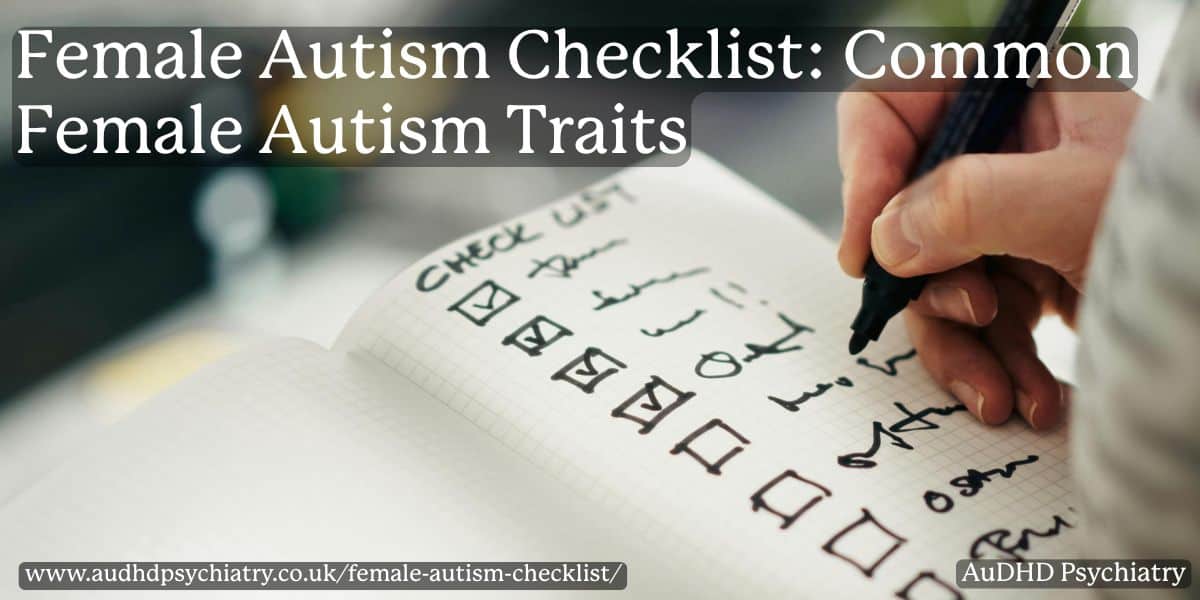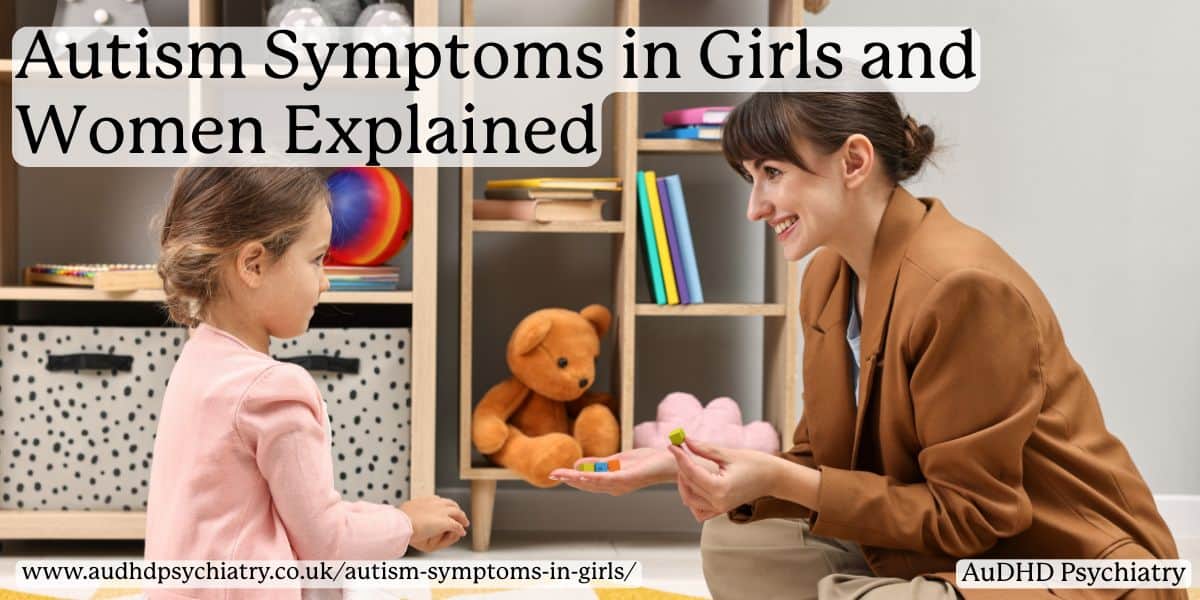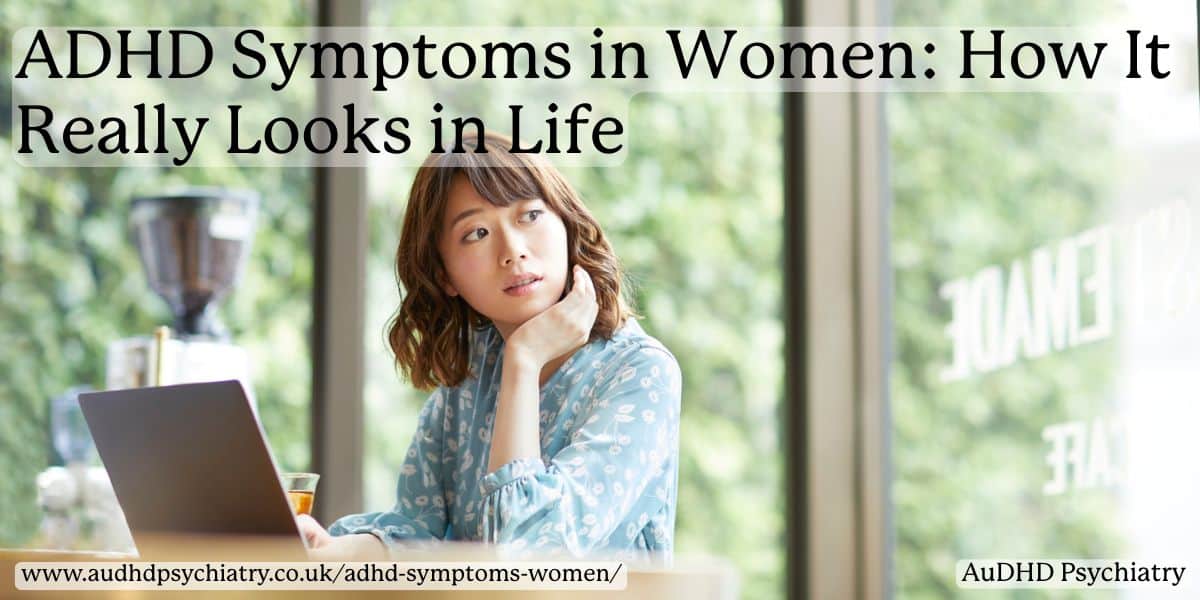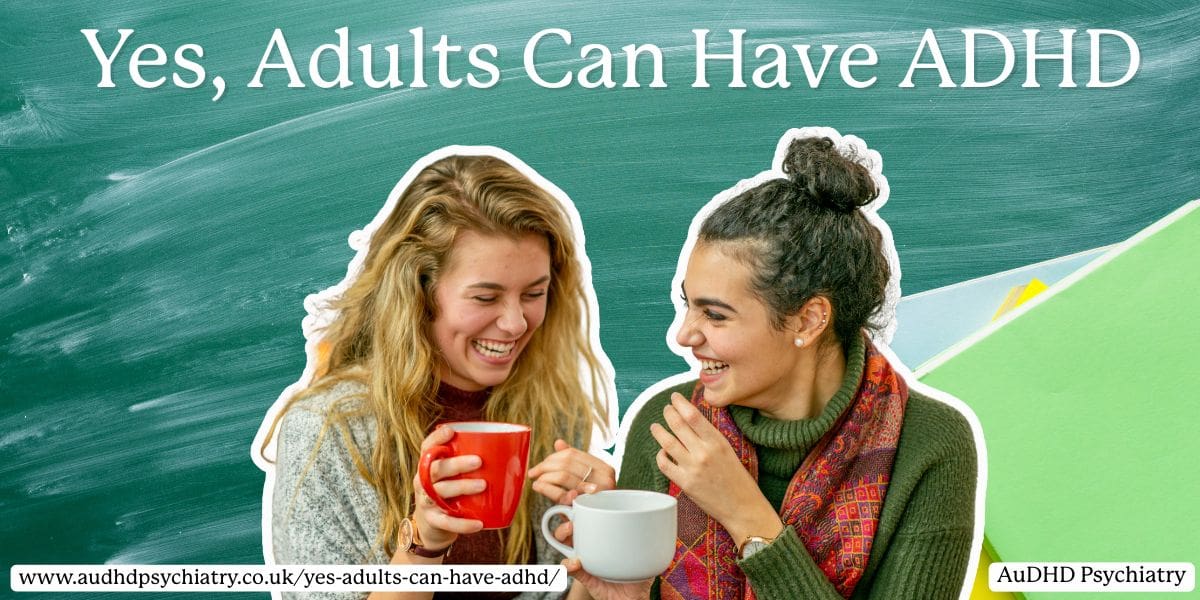
If you’re wondering, can adults really have ADHD, or is it something that only affects children? This is one of the most common questions surrounding attention-deficit hyperactivity disorder (ADHD), and the answer is clear: yes, adults can have ADHD, whether or not they were diagnosed earlier in life.
Although ADHD is often associated with childhood, many people continue to experience ADHD symptoms in adulthood, sometimes without realising the true cause of their struggles with focus, organisation, or impulsivity. In some cases, these challenges only become noticeable when life demands rise, such as in the workplace or parenthood.
In this article, we break down how ADHD can show up in adults, why it often goes undiagnosed, and what steps you can take to find the right diagnosis and support. If you relate to these experiences, keep reading to find out how you may be able to get the right support.
Why Adult ADHD Often Goes Undiagnosed
Many people still believe that ADHD is a condition that only affects children. This outdated myth is one of the main reasons why undiagnosed ADHD remains so common in adults today. In reality, ADHD is a lifelong neurodevelopmental disorder that can continue well into adulthood, even if it was not recognised or diagnosed during childhood.
There are several reasons why adults may have missed a diagnosis earlier in life. Some may have had inattentive ADHD, a type where hyperactivity symptoms are less obvious. Without the classic signs of hyperactive behaviour, these individuals may have been labelled as “quiet,” “daydreamy,” or simply “disorganised,” rather than receiving the right assessment.
Masking and coping mechanisms also play a significant role. Many adults develop strategies to hide or manage their symptoms, such as relying heavily on reminders, overworking, or avoiding certain tasks entirely. These tactics may help for a while, but they often come at the cost of burnout, stress, and low frustration tolerance.
There is also growing recognition of gender bias in ADHD diagnosis. ADHD in adult women frequently goes unnoticed because symptoms may present differently than in ADHD in men. While boys with ADHD might be more likely to display impulsive behaviour or physical hyperactivity, girls and women often struggle more quietly with inattention, emotional dysregulation, or executive dysfunction: issues that are sometimes mistaken for anxiety or depression instead.
These factors, combined with the persistent myth that ADHD is only a childhood issue, prevent many adults from seeking a proper ADHD assessment. Raising awareness of these patterns is key to helping more adults recognise their symptoms and pursue the right diagnosis and support.
If you think ADHD could be affecting your life, taking the free ADHD screening test is a good first step. While not diagnostic, it can help highlight whether a full assessment, such as a BUPA-funded adult autism assessment, may be helpful.
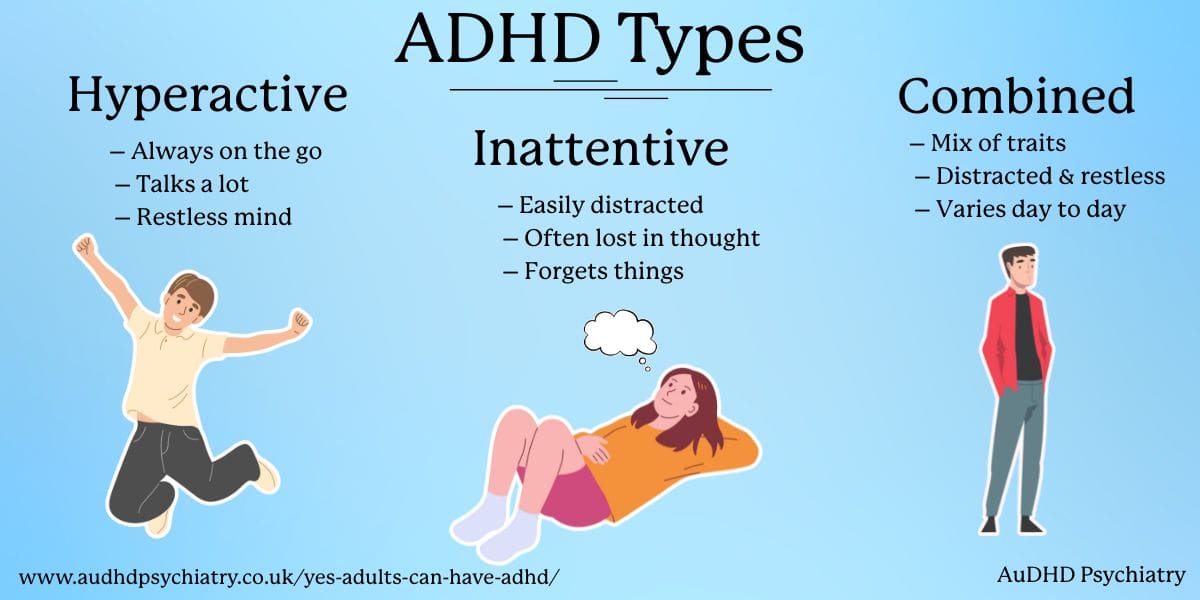
How ADHD Symptoms Show Up in Adults
For many people, ADHD symptoms in adults can look quite different from what they remember seeing in childhood ADHD. Adult life brings new pressures, from managing work and family to staying organised, and these demands can make certain ADHD challenges even more noticeable.
To further explain this, we’ll talk about the 3 main symptoms, also seen in the 3 types of ADHD: inattentive, hyperactive-impulsive, and combined.
Inattention is one of the most common signs of ADHD in adults. This can show up as forgetfulness, missing deadlines, losing track of important tasks, or constantly misplacing everyday items like keys or phones. Difficulty with time management, prioritising tasks, and following through on plans often leads to frustration at work or at home.
While symptoms of hyperactivity in children might involve physical movement like running or climbing, in adults, these behaviours often appear as restlessness, racing thoughts, or difficulty relaxing. Many adults with attention deficit hyperactivity disorder or ADHD describe feeling unable to “switch off,” even during quiet moments.
Impulsivity remains a key symptom of ADHD in adulthood. This may include interrupting conversations, making risky decisions without fully considering the consequences, or experiencing emotional outbursts that feel hard to control. These behaviours can lead to misunderstandings in relationships or challenges in professional environments.
What makes these symptoms even more complex is how they can potentially worsen under workplace stress, parenting responsibilities, or major life changes. As daily demands increase, previously manageable coping strategies may begin to break down, bringing ADHD struggles into sharper focus.
It is important to remember that these challenges are not caused by laziness or carelessness. They reflect genuine difficulties with executive function, the brain’s ability to plan, prioritise, and stay organised.
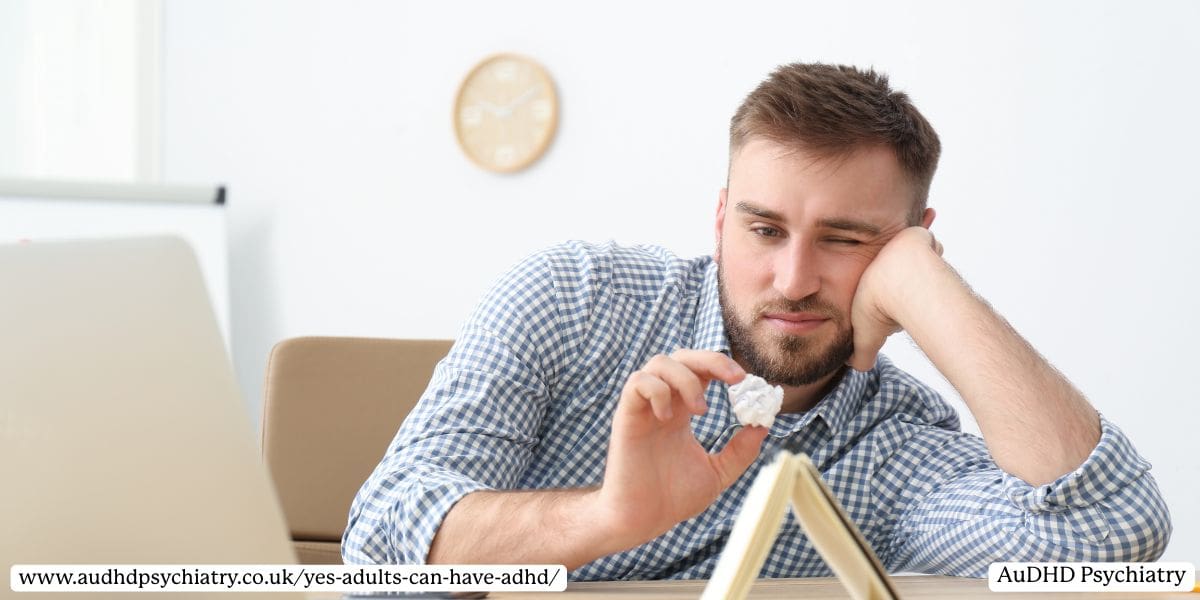
The Emotional Impact of Untreated ADHD in Adulthood
Living with untreated ADHD in adults can have a profound emotional impact. Many people experience a cycle of chronic self-blame, believing they are failing because of personal weakness rather than recognising the role of an underlying mental health disorder.
One of the most common emotional struggles linked to ADHD is low self-esteem. Adults who have battled with disorganisation, missed deadlines, or forgotten commitments may internalise these difficulties as personal failures. Over time, this can lead to a persistent sense of inadequacy and self-doubt.
Years of overcompensation and masking symptoms of ADHD can also result in burnout. People may push themselves to work harder just to keep up with everyday tasks, sacrificing their well-being in the process. This relentless effort often goes unseen by others, adding to feelings of isolation and frustration.
The emotional toll of executive dysfunction, such as difficulty completing tasks, regulating emotions, or managing daily activities, can lead to serious mental health issues if left unaddressed. Many adults with ADHD report struggles with mood swings, anxiety, or depression, especially when their symptoms remain unsupported.
These challenges are not simply about willpower. They are part of the broader ADHD struggle that affects daily functioning, relationships, and long-term goals. Proper recognition of these emotional effects is essential in breaking free from self-blame and moving toward healing.
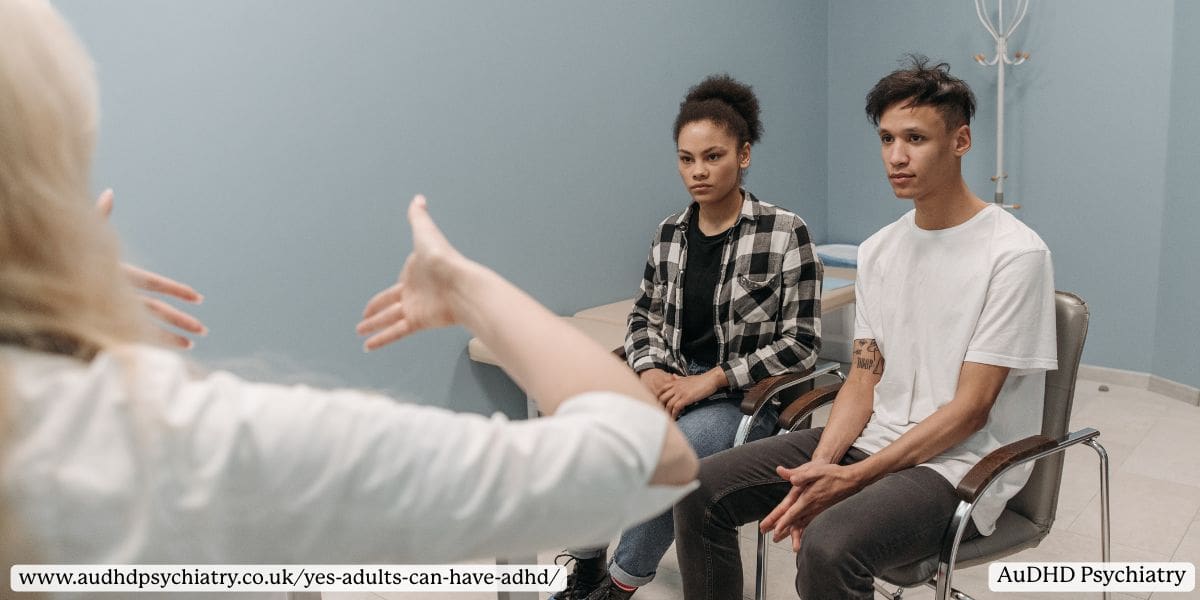
ADHD and Relationships: Understanding the Impact
ADHD in adults does not just affect work performance or personal organisation — it can also significantly shape relationships with partners, family members, friends, and colleagues. Many common ADHD symptoms, such as forgetfulness, impulsivity, and difficulty with emotional regulation, may lead to misunderstandings or conflict in social situations.
One of the most frequent relationship challenges involves listening difficulties. Adults with ADHD may struggle with staying focused during conversations, accidentally interrupt, or forget important details like birthdays, anniversaries, or commitments. These behaviours can easily be misinterpreted by others as carelessness or a lack of interest.
Emotional outbursts or mood swings, often linked to poor impulse control and difficulty managing frustration, can create tension within families or partnerships. Individuals with ADHD may feel remorseful after these episodes, further feeding cycles of self-blame and damaged self-esteem.
Conflict resolution can also be more difficult for adults with ADHD, especially when combined with challenges in executive function. Struggles with staying organised or managing daily responsibilities can lead to repeated arguments about household tasks, finances, or parenting duties.
In romantic partnerships, these patterns may result in the non-ADHD partner taking on a “parenting role”, leading to resentment on both sides. Similarly, ADHD in adult women may be misread as emotional instability, while ADHD in men might be seen as avoidance or disinterest.
However, understanding these dynamics and recognising the role of ADHD symptoms in these patterns can be a powerful first step toward improving communication. Couples therapy, ADHD-specific coaching, and psychoeducation for both partners can provide valuable strategies for managing these challenges.
ADHD or Something Else? When Symptoms Overlap
Because ADHD symptoms such as poor time management, distractibility, and impulsivity can also appear in other conditions, distinguishing ADHD from other mental health disorders is not always straightforward. Conditions like anxiety disorders, depression, and bipolar disorder can mimic or overlap with the difficulties often seen in ADHD.
For example, people with anxiety disorders may avoid tasks due to fear of failure, while adults with ADHD may experience ADHD paralysis, where they feel mentally stuck even when they want to engage. Both may struggle with focus, but for different underlying reasons.
Similarly, depression often involves low mood, fatigue, and a lack of motivation, which can look similar to ADHD-related inattention. However, the emotional root of these symptoms differs. In depression, the drive or desire is often diminished. In ADHD, the desire to engage may still be present, but the ability to focus and follow through is impaired.
Bipolar disorder, which involves cycles of mania and depression, may sometimes be confused with hyperactivity symptoms or mood swings in ADHD. However, bipolar mood changes are typically episodic, whereas ADHD symptoms are consistent over time.
Misdiagnosing ADHD as another condition, or missing ADHD entirely when other disorders are present, can lead to inappropriate treatment plans and missed opportunities for effective care. Some individuals may also have comorbid conditions, where ADHD exists alongside anxiety, depression, or other mood disorders.
This is why seeking a proper ADHD diagnosis from a qualified health care provider is crucial. A thorough evaluation will consider your complete medical history, symptom patterns, and emotional health to help ensure an accurate understanding of your experience. Some adults may also benefit from an autism assessment for adults, since ADHD and autism can overlap and share similar traits.
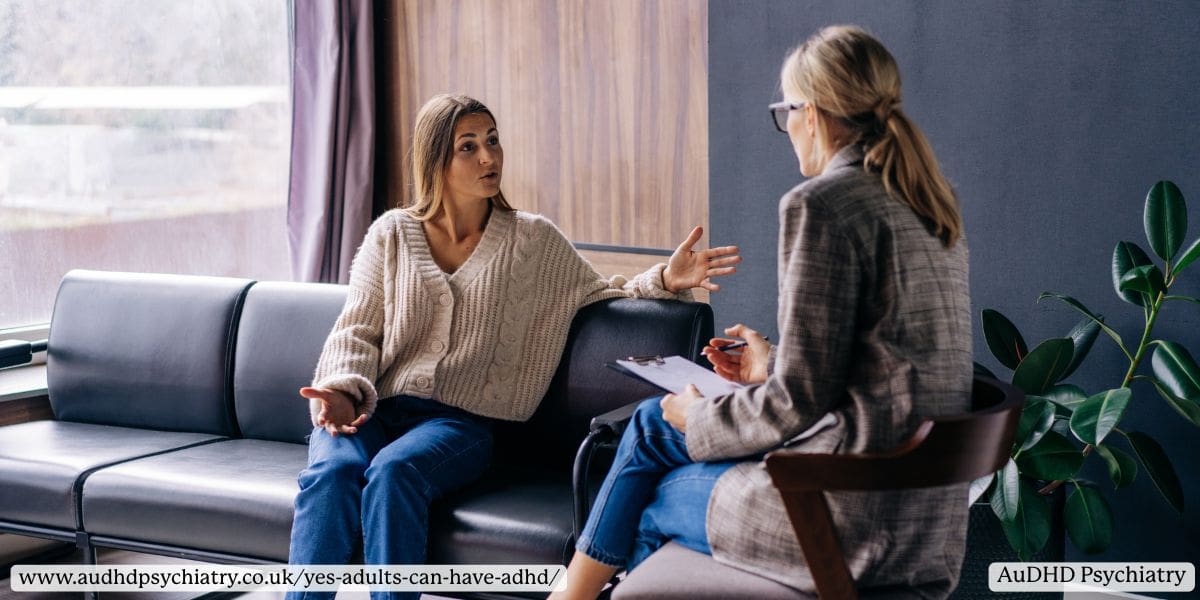
Why Getting Diagnosed as an Adult Matters
Getting an ADHD diagnosis as an adult is often described as a moment of profound relief. For many, it explains lifelong challenges with focus, organisation, impulsivity, and emotional regulation: struggles that may have been wrongly blamed on personal flaws or poor effort.
Understanding that these difficulties are the result of a neurodevelopmental disorder and not a character failing helps reduce harmful self-judgment. This is especially true for those who have spent years battling low self-esteem and internalising the belief that they are simply not trying hard enough.
A formal ADHD assessment for adults provides more than just a label. It opens the door to evidence-based treatments, such as ADHD medications, cognitive behavioural therapy (CBT), or ADHD-specific coaching. These treatment options are designed to improve executive function, build effective coping strategies, and support emotional well-being. If you’re ready to take that step, consider booking an private ADHD assessment in Edinburgh to receive a structured, evidence-based evaluation.
With a proper diagnosis, adults can also access reasonable workplace accommodations through the Equality Act 2010 in the UK. Adjustments like flexible deadlines, structured task lists, or quiet working environments can make daily responsibilities more manageable and improve long-term job satisfaction. An Adult ADHD Assessment is often the first step toward receiving these formal supports.
Recognising ADHD can also help improve personal relationships. Understanding how ADHD symptoms may affect communication, timekeeping, or emotional responses allows for better conflict resolution and shared strategies for success.
Seeking the right diagnosis and proper treatment is not just about managing symptoms. It is about achieving personal growth, improving your quality of life, and building supportive systems that allow you to thrive.
If these experiences sound familiar, consider exploring the process of getting tested for neurodivergence. Our step-by-step guide on how to get tested for neurodivergence offers helpful insight into what to expect.
Can You Develop ADHD Later in Life?
This is a common question: can adults develop ADHD, or has it always been there, unnoticed? Research suggests that ADHD is a neurodevelopmental condition, meaning it begins in childhood ADHD. However, for many, the condition goes unrecognised until adulthood, when life changes and increasing demands expose the struggles that were previously masked.
This scenario is often referred to as late ADHD diagnosis, not late onset. As we’ve mentioned many adults may have used effective masking strategies or coping mechanisms throughout their younger years. Structured school environments, parental guidance, or fewer responsibilities may have helped keep symptoms under control. But as life circumstances shift, environmental factors may change – whether due to parenting stress, starting a new job, or facing work stress – these strategies may no longer be enough.
This is what professionals call ADHD unmasking. Symptoms such as poor time management, forgetfulness, impulsivity, and emotional regulation issues become more noticeable when external structures are removed or when responsibilities increase. This is especially common for women, where ADHD in adult women may have been missed due to quieter symptoms like internal restlessness or disorganisation.
Importantly, ADHD does not “develop” in adulthood, but undiagnosed ADHD can surface when the support systems that once helped to compensate begin to break down. High-functioning individuals may have excelled academically or socially in earlier stages of life, making their ADHD challenges harder to spot until pressures grow.
If you resonate with these symptoms, an ADHD NHS assessment or private evaluation can help determine whether lifelong patterns align with ADHD criteria.
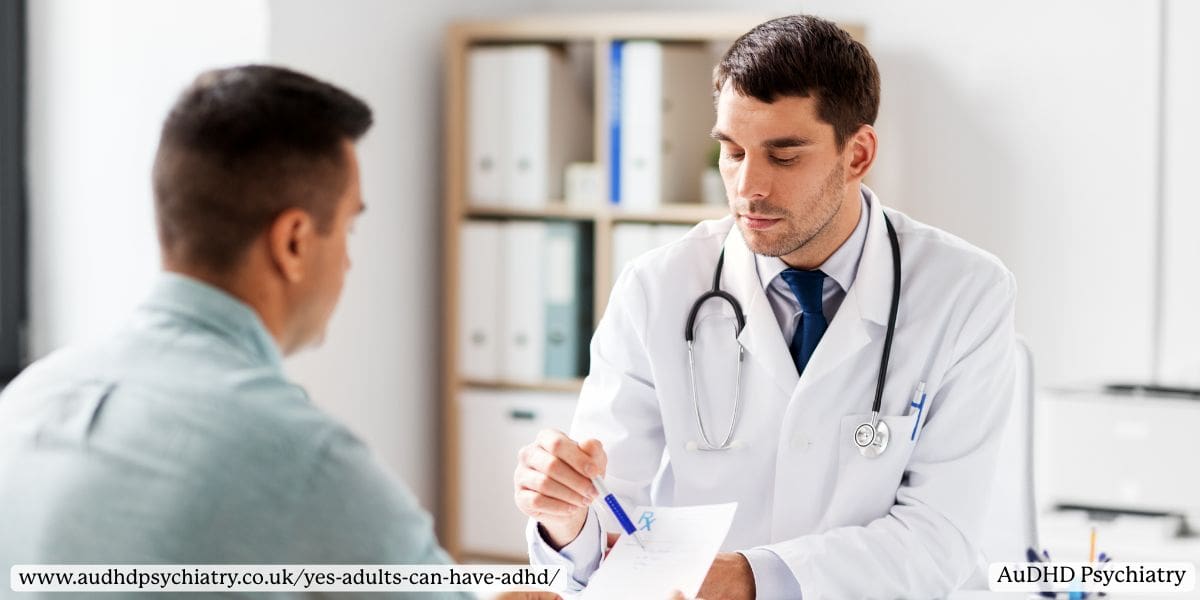
How to Talk to Your Doctor About Adult ADHD Concerns
If you suspect you may have adult ADHD, opening up a discussion with your healthcare provider is an important step toward getting the right diagnosis and support. Since ADHD symptoms can potentially overlap with other conditions, a clear description of your experiences will help guide the assessment process.
Start by documenting your symptom history. Make note of challenges such as difficulty paying attention, poor time management, forgetfulness, impulsive behavior, and struggles with organisation. Be ready to explain how these issues affect your daily life, relationships, and work performance.
It is helpful to give concrete examples. Describe missed deadlines, forgotten appointments, emotional outbursts, or how long it takes to complete everyday tasks. If possible, ask family members or close friends to share their observations – their insights may help highlight patterns that you might overlook.
During the ADHD assessment process, your doctor or licensed therapist will likely ask about your complete medical history. This includes questions about your childhood, as ADHD symptoms must typically be present from an early age to meet the diagnostic criteria outlined in the statistical manual of mental disorders (DSM-5).
Adult ADHD Management and Treatment Options
Receiving a diagnosis of ADHD is a valuable first step, but effective treatment involves finding the right ADHD treatment options to suit your needs. For many adults, this includes a mix of medication, therapy, and lifestyle strategies to manage symptoms and improve daily functioning.
Medication remains one of the most widely used treatments for ADHD. Options include stimulant medication, such as methylphenidate, and non-stimulant medication like atomoxetine. These medications work by supporting dopamine and norepinephrine levels in the brain, improving focus, impulse control, and attention. our ADHD specialist or doctor can guide you in balancing the benefits and possible side effects to find the option that suits you best.
Therapies like cognitive behavioural therapy (CBT) and ADHD coaching focus on practical tools and coping mechanisms. They can help with executive function skills such as task initiation, time management, and emotional regulation. These approaches address the everyday challenges of ADHD beyond medication alone.
Lifestyle adjustments also play an important role. Many adults find success through structured routines, exercise, mindfulness techniques, and the use of time management tools like planners or apps. These strategies can improve focus and reduce overwhelm in both work and home settings.
In the workplace, securing reasonable adjustments through the Equality Act 2010 may help ease daily pressures. These may include flexible schedules, quiet workspaces, or clear task lists to support productivity. In this guide, you may find additional tips and strategies on how to manage ADHD in the workplace.
With the right combination of evidence-based treatments and personal strategies, adults with ADHD can significantly ease their challenges and experience an overall better quality of life.
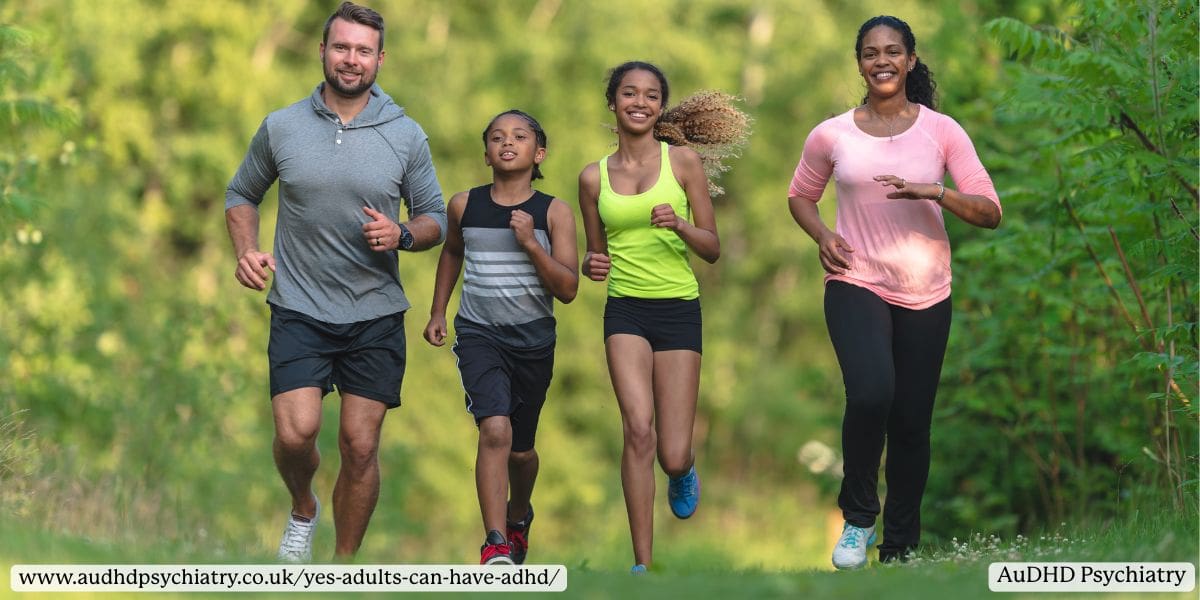
Coping Strategies and Self-Help Tips for Adult ADHD
In addition to formal treatments like medication and therapy, many adults with ADHD benefit from self-help strategies that support day-to-day functioning. These practical tools can make it easier to manage symptoms like forgetfulness, disorganisation, and time management difficulties.
One of the most effective strategies is developing a consistent routine. This may include setting regular wake-up times, using visual planners, or blocking out specific time slots for tasks. Many people with ADHD find that keeping a daily checklist or using apps designed for ADHD task management helps reduce overwhelm.
Breaking tasks into smaller, actionable steps is another powerful coping tool. Large projects can feel paralysing when viewed as a whole, but dividing them into bite-sized actions can make them feel more achievable.
Mindfulness techniques, like meditation or grounding exercises, can help improve focus and reduce impulsivity. Even brief mindful breathing exercises during the day may help calm racing thoughts and improve emotional regulation.
Physical activity is widely recognised as beneficial for ADHD. Exercise can help boost dopamine levels, improve concentration, and regulate mood. Whether it’s walking, swimming, cycling, or strength training, incorporating movement into your routine can support better emotional balance and mental clarity. You can read more about this in our article on the role of exercise in managing ADHD symptoms.
Finally, using ADHD-specific resources can support your self-help efforts. Our curated list of ADHD resources and tools offers worksheets, productivity aids, and useful strategies designed to help adults navigate common challenges.
While self-help strategies are not a replacement for medical care, they can significantly improve day-to-day well-being when used alongside evidence-based treatment. Finding the right combination of tools that work for you is key to managing ADHD and thriving in adulthood.
Conclusion: Yes, Adults Can Have ADHD
If there is one clear takeaway from this guide, it is that yes, adults can have ADHD, and recognising this is the first step toward finding the right support. ADHD is not just a childhood condition that people grow out of. For many, the challenges of adult ADHD become more noticeable later in life, especially when demands at work, home, or in relationships increase.
The good news is that proper treatment and support are available. Whether through medication, therapy, coaching, or self-help strategies, there are effective ADHD treatment options that can help reduce symptoms and improve daily life.
Living with ADHD can feel overwhelming at times, but with the right support systems in place, it is possible to thrive. The journey toward understanding your brain and finding what works for you is not just about managing symptoms. It is about building a life where you can succeed and feel empowered.
If the experiences described in this article feel familiar, consider taking the first step by using our free ADHD screening test. This can help you understand whether a full ADHD assessment may be worthwhile. For those ready to explore further, you can also book an ADHD assessment to get a clearer picture of your needs and the support options available.
You might also find our guide on Is It ADHD or Just Laziness helpful in understanding how ADHD can affect daily motivation and productivity.
You Might Also Like
Contact Us
We’re here to answer any questions you might have.
Get in Touch
Opening Hours
Contact Form
We’re here to help. Reach out and we’ll get back to you within 24 hours (Monday – Friday).

